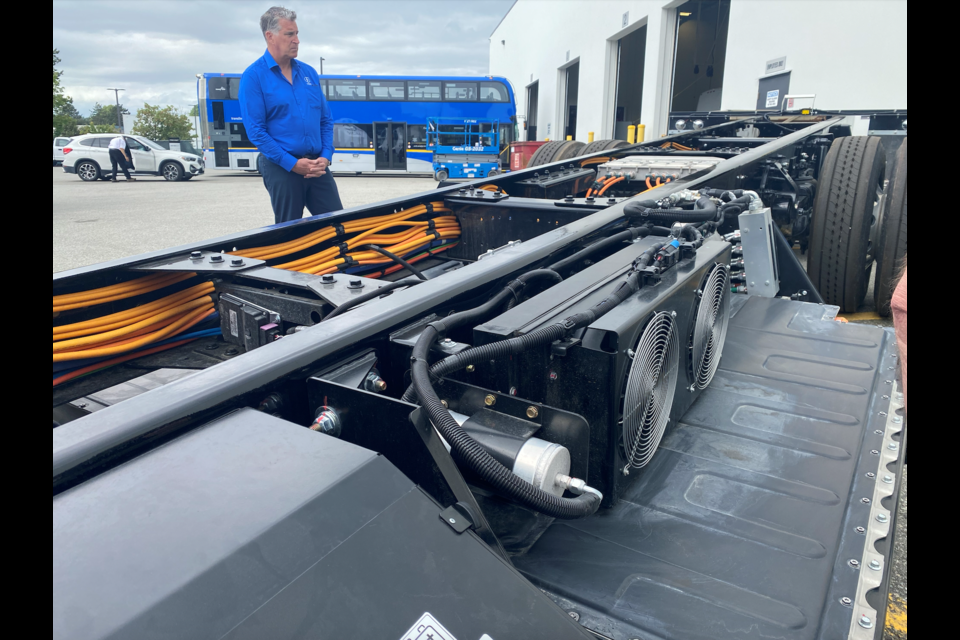Electric vehicles are one thing, but a heavy-duty truck or school bus powered solely by electricity is harder to imagine.
That’s why Lion Electric, a Canadian manufacturer of all-electric medium and heavy-duty vehicles, launched a four-day “experience center” in Richmond on Tuesday.
A yellow school bus, large commercial truck and a pick-up where on display to help illustrate what’s possible.
A Richmond News reporter got a chance to hop on one of the trucks and drive around No. 5 Road with driver John Vaughn, who is also the product and field engineer of Lion Electric.
"It’s very smooth and fast," said Vaughn. "It's nice that we can have a conversation without yelling."
Vaughn said diesel engines are loud and spew black exhaust, but electric trucks are extremely quiet in comparison, which not only reduces noise pollution but can help save a driver’s hearing.
In addition, the cost of charging and maintaining an electric truck is 80 per cent less than that of a diesel truck, noted Patrick Gervais, vice president of marketing and communications with Lion Electric.
He also pointed out their company's Class Six truck to the News reporter, explaining that the truck has six batteries and once it's fully charged, can run for up to 320 kilometres.
"As you can see, the motor is right in the middle and it's pretty small," said Gervais.
Concerns have been raised about what happens to vehicle batteries once they’re decommissioned.
Gervais said these batteries could be reused for energy storage and to keep local solar farms and wind farms running.
Gervais said their team has travelled across North America with the aim of helping people become more familiar with the electric truck concept by hopping on a truck and going for a ride so they can see for themselves the benefits.
The company chose Richmond to host its first event in B.C. because it had a spacious facility that could house the heavy-duty vehicles.
Moreover, British Columbia has a reputation as one of North America's climate action leaders, he added.



